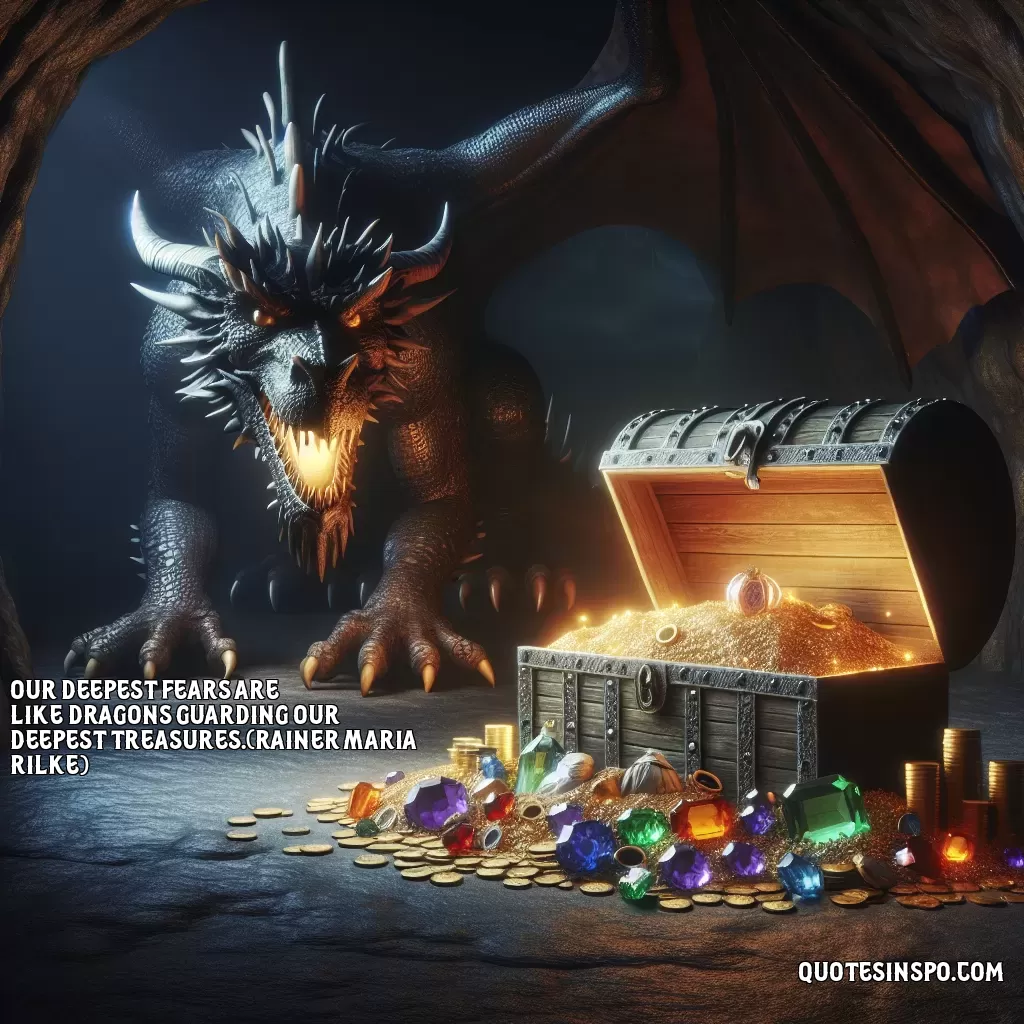
Our deepest fears are like dragons guarding our deepest treasures.(Rainer Maria Rilke)

Our deepest fears are like dragons guarding our deepest treasures.(Rainer Maria Rilke)
Rainer Maria Rilke’s metaphorical quote, "Our deepest fears are like dragons guarding our deepest treasures," offers a profound insight into the relationship between fear and personal growth. At its core, the quote suggests that the things we fear the most often stand in the way of our greatest potential and the rewards we seek. Dragons, in mythology, are seen as formidable and terrifying creatures, typically depicted as gatekeepers to something valuable—be it gold, knowledge, or power. Similarly, our deepest fears often appear to be daunting obstacles, powerful enough to deter us from venturing forward. These fears can manifest as doubts about our abilities, fear of failure, fear of vulnerability, or fear of the unknown. Yet, the treasures they guard—our true potential, hidden talents, authentic selves, and personal truths—remain inaccessible until we are willing to confront these dragons. This confrontation requires courage, self-reflection, and resilience. By facing our fears, we can break through self-imposed barriers, leading to self-discovery and growth. The process may be challenging and uncomfortable, but it often results in finding what is valuable and meaningful within ourselves. Rilke’s quote, therefore, encourages us to view fears not as impediments but as opportunities for transformation. Embracing this perspective allows us to pursue growth, turning fear from an obstacle into a catalyst for discovering and realizing our inner treasures. Through courage and perseverance, we can turn our dragons from adversaries into allies in our journey of self-fulfillment and realization.
Quote By: Rainer Maria Rilke
Rainer Maria Rilke (1875–1926) was a German-speaking Bohemian poet and novelist, renowned for his profound exploration of existential themes and the human experience. His most famous works include "Duino Elegies" and "Sonnets to Orpheus," which reflect his deep introspection and spiritual concerns. Rilke's lyrical style and philosophical depth have made him a significant figure in 20th-century literature and a precursor to modernist poetry.
Bio added on: 2025-03-13 07:36:59